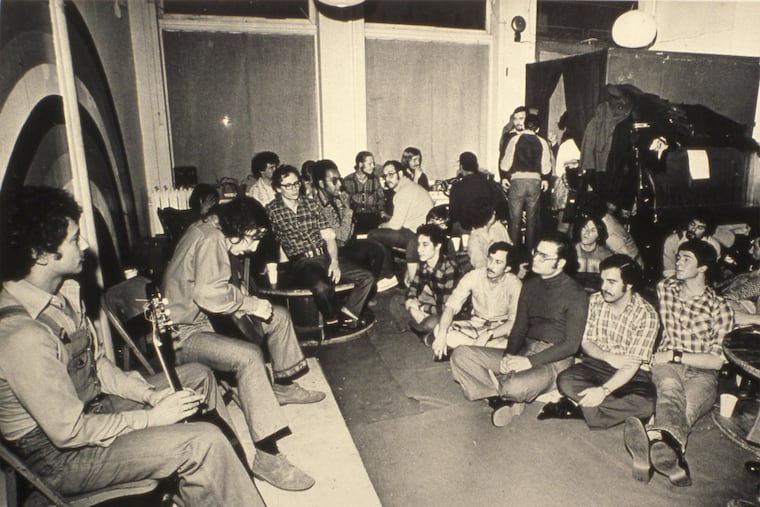After years of silence, LGBTQ stories liberated us | Kevin Riordan
Ignorant proclamations by “authorities” who knew nothing about the facts of LGBTQ life had for too long dominated not only public perceptions of us, but our own as well.

Flashback to 1979: I’m in a big group of young guys gathered around a tiny black-and-white TV at Philadelphia’s gay community center.
An hour-long, prime-time ABC News documentary, unimaginatively titled Homosexuals, is being broadcast at last, featuring interviews with ordinary gay people — like those of us watching inside that funky old building on Kater Street.
It had been a decade since the 1969 Stonewall rebellion in New York City energized the modern gay-rights movement, and ABC offered a major improvement over most TV coverage of the time, which often featured loopy psychiatrists and religious fanatics who pontificated about our tragic and/or sinister existence. Newspapers weren’t much better: The New York Daily News story about Stonewall was headlined Homo Nest Raided, Queen Bees Are Stinging Mad, and even the New York Times had long looked down upon us through a moralizing, medical-ized lens.
But after Stonewall, as more LGBTQ people came out, spoke out, and wrote about our lives, the silence and near-invisibility enforced on us by law, custom, and culture gradually gave way. An ever more diverse and glorious cacophony of our voices took a rightful place in a narrative that had been shaped -- and mostly distorted -- almost exclusively by others, many of whom regarded us as perverts, criminals, or worse. Ignorant proclamations by “authorities” who knew nothing about the facts of LGBTQ life had for too long dominated not only public perceptions of us, but our own as well.
No wonder feeling liberated at last from the lies felt so empowering. I’ll never forget moving to Philly from Syracuse, N.Y., in 1976 and loving the sight of the Philadelphia Gay News boxes on Center City street corners (thank you, pioneering publisher Mark Segal). I vividly remember walking for the first time into the gay bookstore Giovanni’s Room. The exhilaration of so many words, written about us, for us, by us!
The freedom to begin speaking truth to power was possible because of the often-difficult and sometimes dangerous coming-out decisions by millions of women, men, and gender-nonconforming people — at Stonewall and elsewhere, that last group of folks were very much on the front lines.
Later, after AIDS (finally) became a major mainstream news story, gay people and gay relationships were seen by millions in a far more sympathetic spotlight than had been the norm. And the in-your-face activism of ACT-UP, with its memorable and all-too-true Silence=Death logo and slogan, helped us and our many straight allies pressure Big Pharma to do the right thing.
Stories like those, including personal accounts, photographs, Pride memorabilia, and other materials, are being collected, curated, digitized, and made available for study at the John J. Wilcox Jr. Archives at Philadelphia’s William Way LGBT Community Center. A hub of activity near 13th and Spruce in Center City, William Way is the stately successor to the decidedly lo-fi facility where I watched Homosexuals 40 years ago.
“Some LGBT people come out without a sense of their connection to a story that goes back centuries," says William Way executive director Chris Bartlett. “The archive helps them tell their own story and see how it fits in with the larger history.”
Speaking of a larger history, it’s important to also remember that long before Stonewall, activists, writers, and others were building what became a movement. An annual demonstration for gay rights that began on July 4, 1965, in front of Independence Hall is widely considered one of the first of its kind anywhere.
I wrote about the 50th anniversary of that landmark action in 2015. Years before, I had interviewed organizer Barbara Gittings, a Philadelphian whose partner, the photographer Kay Tobin Lahusen, captured the pioneering demonstration and many of those that followed.
It was a privilege to have interviewed them both. It’s wonderful to know that their contributions, and those of so many others, will be remembered as our community celebrates Stonewall’s 50th anniversary.
Despite the Trump administration’s hostility to transgender people and the fright wing’s pushback against marriage equality and our other victories, we will never stop telling our own stories, in our own words. We know all too well that the price of silence is too high.